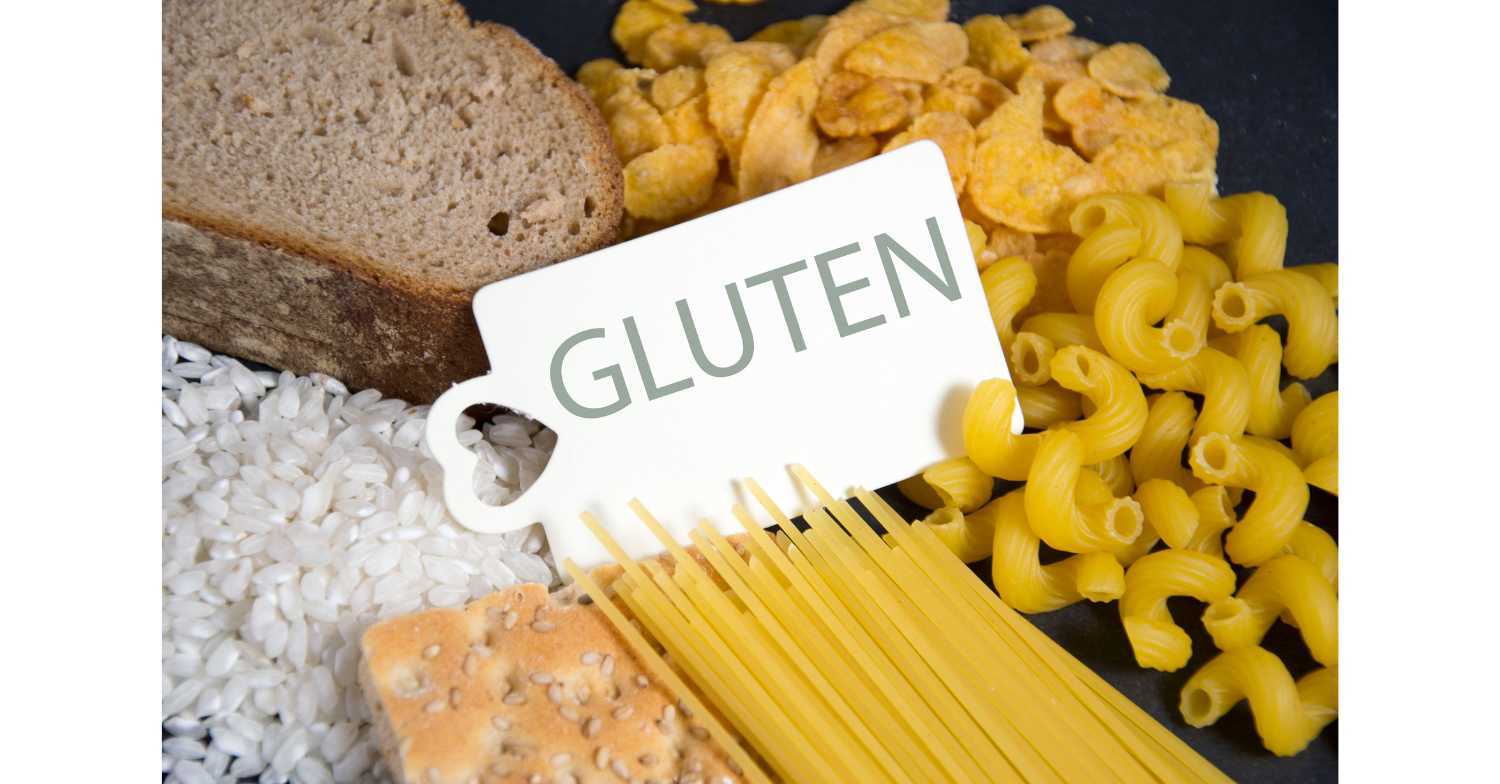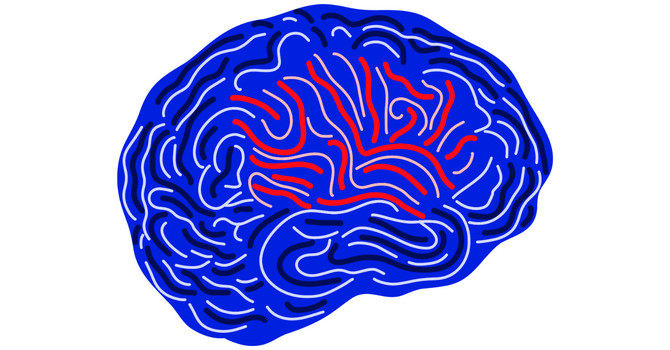
Gluten is a type of protein that is commonly found in wheat, barley, rye, and other related grains. It is what gives bread its elasticity and chewy texture, and is often added to other foods as a thickening or binding agent.
However, these same chemical bonds that act great as a food binder, also make gluten difficult to digest. In order to break down gluten, the body must produce a type of enzyme called protease, which is produced in the stomach and pancreas. Protease breaks down the peptide bonds between amino acids in proteins, but it is less effective at breaking down the strong bonds in gluten. Additionally, Gluten is a heavy molecule compared to others foods and can add difficulty to digesting it.
There are 3 different types of gluten intolerances: Celiacs Disease, Allergy and Intolerance.
People with celiac disease have an immune reaction to gluten that damages the lining of the small intestine, which can lead to a range of symptoms including digestive issues, malnutrition, and other health problems. For people with celiac disease, a gluten-free diet is necessary to manage the condition and prevent further damage to the gut.
There are also people that are simply allergic to wheat or other types of gluten and simply have to avoid it so they don’t have an allergic reaction.
Gluten sensitivity, also known as non-celiac gluten sensitivity, is a condition in which a person experiences adverse reactions after consuming gluten-containing foods, but does not have celiac disease or a wheat allergy.
The exact cause of gluten sensitivity is not fully understood, but it is believed to involve the immune system and a response to certain components of gluten. The symptoms of gluten sensitivity can vary widely from person to person, and can be similar to those experienced by people with celiac disease, although typically less severe. Some common symptoms of gluten sensitivity include:
- Digestive issues: abdominal pain, bloating, diarrhea, constipation, and nausea.
- Skin problems: itchy rash or hives.
- Headaches: migraines, tension headaches, or brain fog.
- Joint pain: inflammation, swelling, or stiffness.
- Fatigue: feeling tired, sluggish or lacking energy.
- Mood changes: depression, anxiety or irritability.
- Hormonal imbalances: irregular periods, infertility or PCOS.
In addition to being difficult to digest, the grains that contain gluten are often grown using pesticides, including glyphosate, which can lead to residues of pesticides on the grain. Some studies have suggested that even low levels of glyphosate exposure may have negative effects on human health, such as disrupting the gut microbiome and increasing the risk of certain types of cancer.
Wanting to learn more about Gluten? Check back with us next week for a second post related to eating gluten free and join us on April 19th at 3:45 at Epiphany Gluten Free Bakery for a free presentation about Gluten!
Heal Thyself Institute works with many patients who are gluten free. We post weekly facts or Gluten Free recipes on our social media and will be releasing a gluten and dairy free meal plan in late spring 2023. If you are interested in learning more or scheduling an appointment with us, please call 239-955-1355
Lo que TÚ necesitas saber sobre el Gluten
El gluten es un tipo de proteína que se encuentra comúnmente en el trigo, la cebada, el centeno y otros granos relacionados. Es lo que le da al pan su elasticidad y textura masticable, y a menudo se agrega a otros alimentos como agente espesante o aglutinante.
Sin embargo, estos mismos enlaces químicos que actúan muy bien como aglutinante de alimentos también hacen que el gluten sea difícil de digerir. Para descomponer el gluten, el cuerpo debe producir un tipo de enzima llamada proteasa, que se produce en el estómago y el páncreas. La proteasa rompe los enlaces peptídicos entre los aminoácidos de las proteínas, pero es menos eficaz para romper los enlaces fuertes del gluten. Además, el gluten es una molécula pesada en comparación con otros alimentos y puede dificultar su digestión.
Hay 3 tipos diferentes de intolerancia al gluten: Enfermedad Celíaca, Alergia e Intolerancia.
Las personas con enfermedad celíaca tienen una reacción inmune al gluten que daña el revestimiento del intestino delgado, lo que puede provocar una variedad de síntomas que incluyen problemas digestivos, desnutrición y otros problemas de salud. Para las personas con enfermedad celíaca, es necesaria una dieta sin gluten para controlar la afección y evitar daños adicionales en el intestino.
También hay personas que simplemente son alérgicas al trigo u otros tipos de gluten y simplemente deben evitarlo para no tener una reacción alérgica.
La sensibilidad al gluten, también conocida como sensibilidad al gluten no celíaca, es una condición en la que una persona experimenta reacciones adversas después de consumir alimentos que contienen gluten, pero no tiene enfermedad celíaca ni alergia al trigo.
La causa exacta de la sensibilidad al gluten no se comprende completamente, pero se cree que involucra al sistema inmunológico y una respuesta a ciertos componentes del gluten. Los síntomas de la sensibilidad al gluten pueden variar ampliamente de una persona a otra y pueden ser similares a los que experimentan las personas con enfermedad celíaca, aunque por lo general son menos graves. Algunos síntomas comunes de la sensibilidad al gluten incluyen:
Problemas digestivos: dolor abdominal, hinchazón, diarrea, estreñimiento y náuseas.
Problemas de la piel: sarpullido con picazón o urticaria.
Dolores de cabeza: migrañas, dolores de cabeza por tensión o niebla mental.
Dolor en las articulaciones: inflamación, hinchazón o rigidez.
Fatiga: sensación de cansancio, lentitud o falta de energía.
Cambios de humor: depresión, ansiedad o irritabilidad.
Desequilibrios hormonales: períodos irregulares, infertilidad o SOP.
Además de ser difíciles de digerir, los granos que contienen gluten a menudo se cultivan con pesticidas, incluido el glifosato, lo que puede generar residuos de pesticidas en el grano. Algunos estudios han sugerido que incluso niveles bajos de exposición al glifosato pueden tener efectos negativos en la salud humana, como alterar el microbioma intestinal y aumentar el riesgo de ciertos tipos de cáncer.
¿Quieres saber más sobre el gluten? Vuelva con nosotros la próxima semana para una segunda publicación relacionada con comer sin gluten y únase a nosotros el 19 de abril a las 3:45 en Epiphany Gluten Free Bakery para una presentación gratuita sobre el gluten.
Heal Thyself Institute trabaja con muchos pacientes que no tienen gluten. Publicamos datos semanales o recetas sin gluten en nuestras redes sociales y lanzaremos un plan de comidas sin gluten ni lácteos a fines de la primavera de 2023. Si está interesado en obtener más información o programar una cita con nosotros, llame al 239-955-1355

Waldo Amadeo
Contact Me



